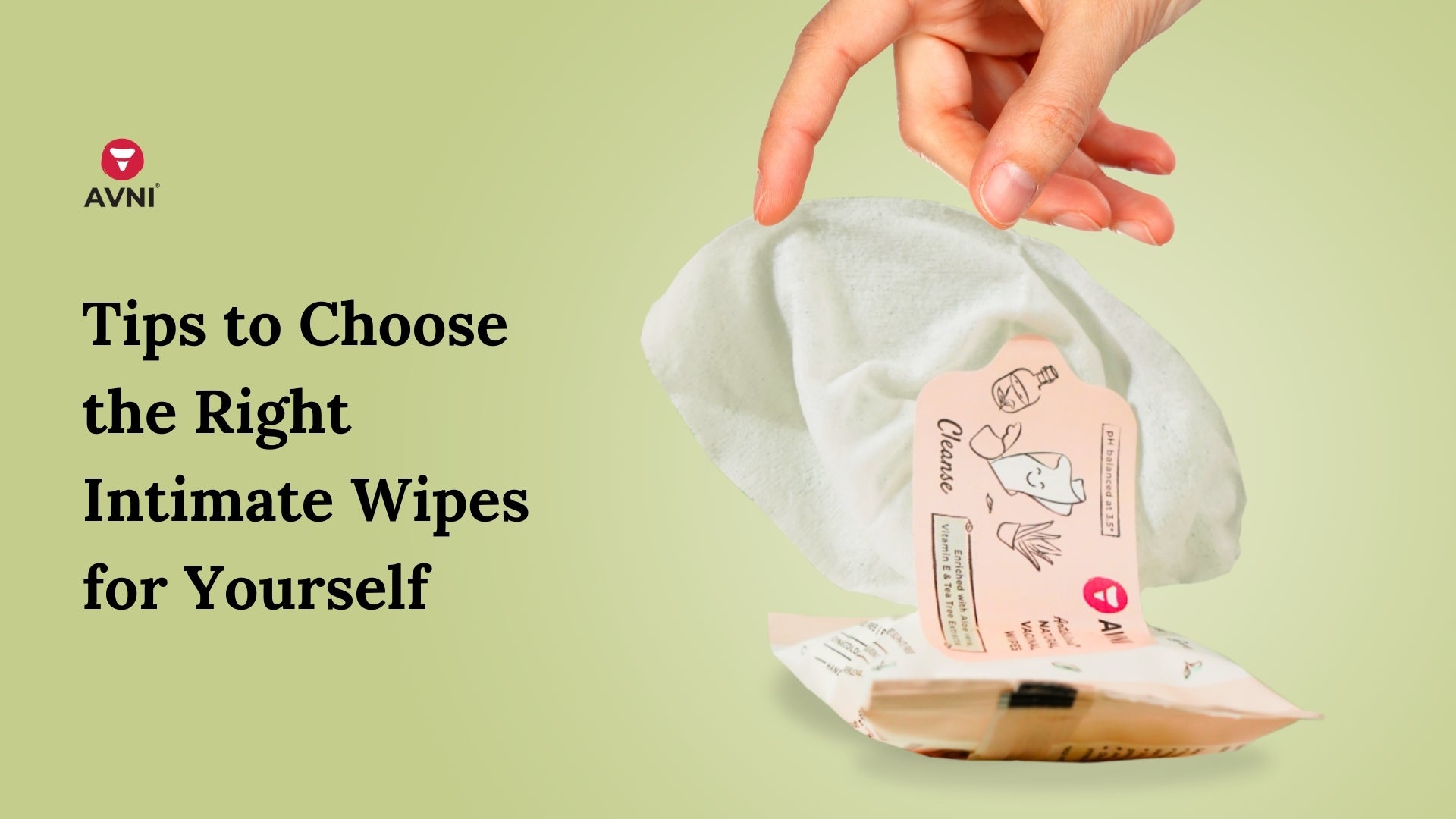
Tips to Choose the Right Intimate Wipes for Yourself
We have come a long way when intimate hygiene was considered a taboo. A taboo that many women (and men) paid dearly in the form of infection and sometimes fatality. However, times have changed and so has the way intimate hygiene is perceived and practised in the current times.
We started with the humble soap and water, while it is still a good idea to many, it often messes with the delicate pH balance in the private regions. To counter this, intimate washes have been brought into the scene to exclusively help clean the sensitive private regions.
However, these innovative sanitary products often fall short while travelling or simply being on-the-go. In this case, intimate wipes can come to the rescue, making it easy to stay clean down there even while you are on the go.
It is important to ensure the below ingredients or contents are not present in the intimate wipe
- Parabens - starting with the biggest NO on the list, parabens are notorious for causing skin irritation and a wide range of skin issues. Keep away from parabens as a general rule of thumb, not only in intimate wipes but in all cosmetics.
- Phthalates - these plasticisers are used to produce various plastics and polyvinyl chloride. The harm caused by plastics is public information so steer clear of products that contain Phthalates.
- SLS (Sodium Lauryl Sulphate) - SLS is the most common ingredient used in body washes, shampoos, toothpaste, and even intimate washes, but both women & men must ensure this isn’t present in any of your products. Private areas are sensitive, and SLS can cause irritation, rash, and other skin problems.
- Soap - experts assert that the most critical aspect of feminine hygiene is balancing the correct pH value “down there”. Soap can not only make your mucosal lining dry but can also disrupt the pH value as well.
- Perfumes - are usually synthetic fragrances that contain a wide variety of chemicals that can harm your intimate regions. Again, read the product's contents in detail, and unless the perfume is purely floral or citrus, staying away from it makes the most sense.

Lastly, this is how to use intimate wipes safely.
- Being gentle is the first rule as the vagina and the area around is much more delicate than the rest of the body. If you wipe vigorously or in a hurry, you may easily cause a rash, redness, or irritation.
- Use multiple wipes and ensure not to wipe other regions around the vulva with the same wipe. It is crucial not to spread the bacteria from one place to the other and from the same wipe.
- While wiping, always go front to back as wiping the opposite way can transfer bacteria from your anus and harm your vulva.
- Most intimate wipes are moisturised, so ensure to reseal yours thoroughly after each use. If not, the wipes are exposed to air and become dry, rendering them useless.
FAQs
Can I use intimate wipes during periods?
It is recommended that you keep a pack at hand because periods can be messy sometimes and this helps remove the remnants as well.
Are intimate wipes harmful?
Intimate wipes are not harmful as long as you stick to the outer portion of your intimate regions and of course, they are made of natural materials.
Which intimate wipes should I go for?
Go for unscented intimate wipes for your vaginal area and the scented ones have deodorant like properties which might adversely affect the healthy bacteria down there.



Leave a comment
This site is protected by hCaptcha and the hCaptcha Privacy Policy and Terms of Service apply.